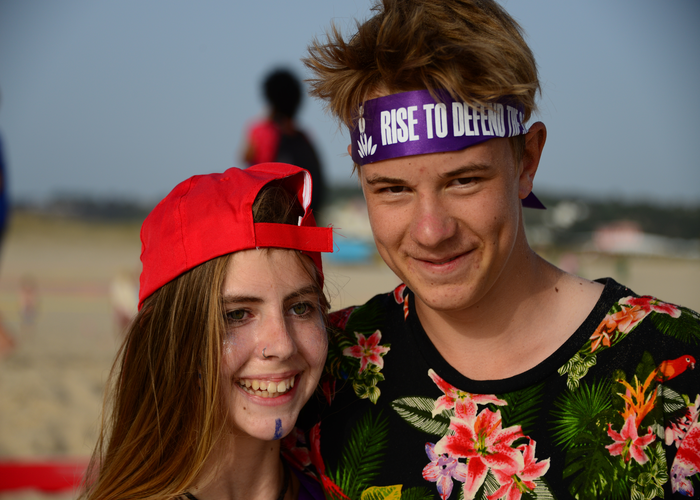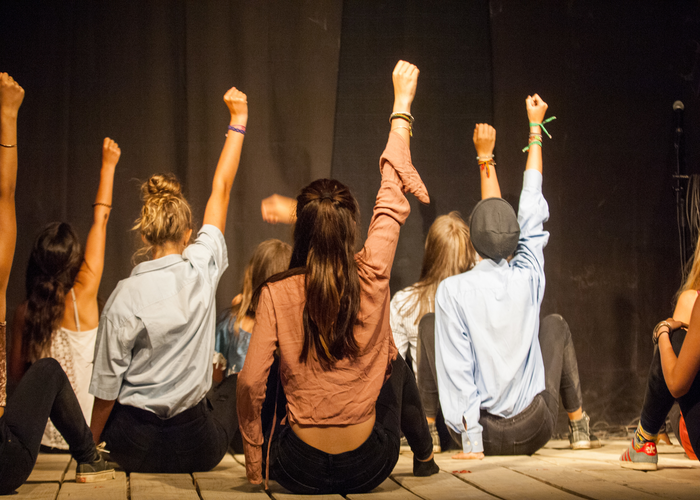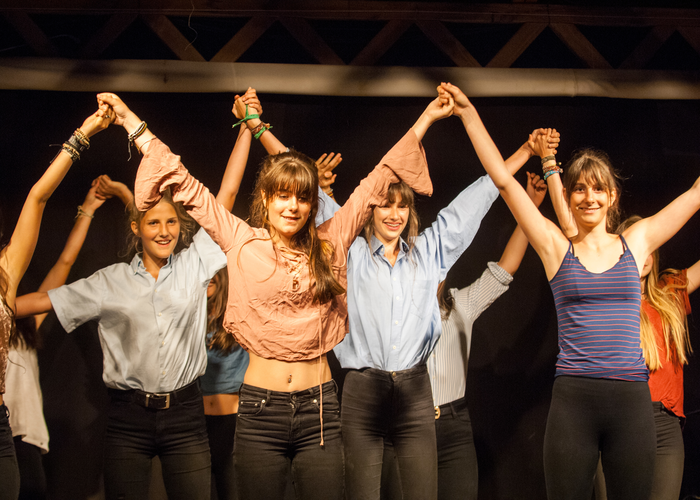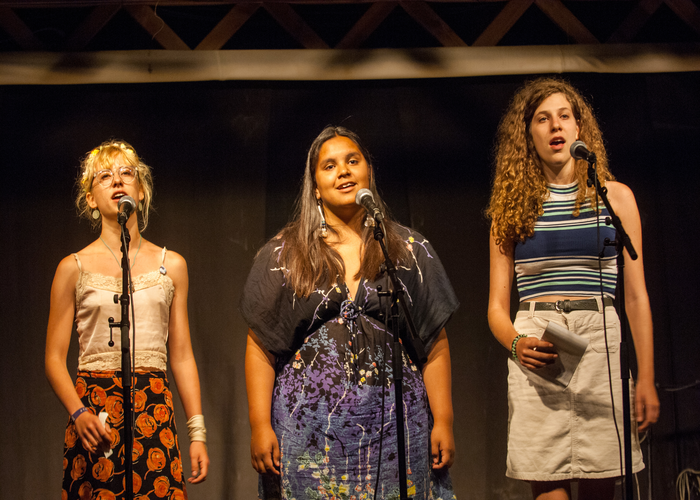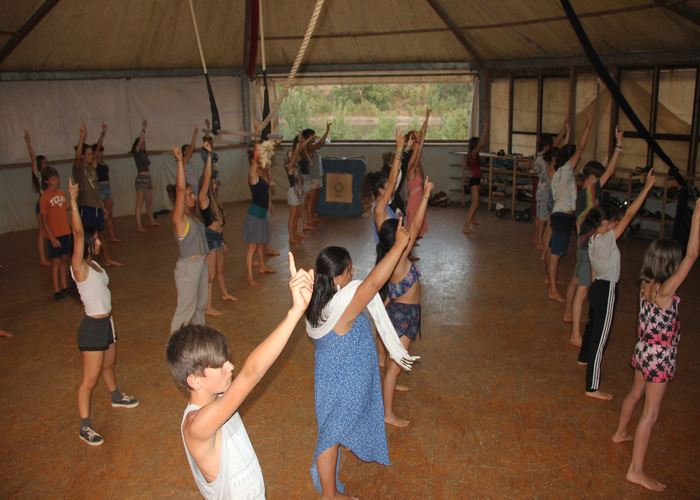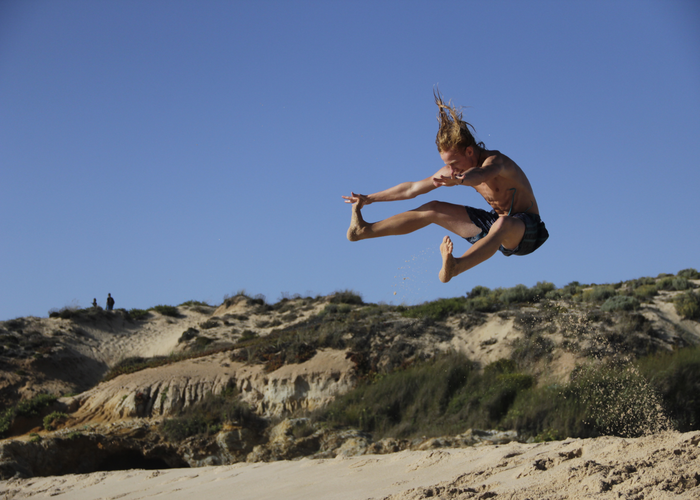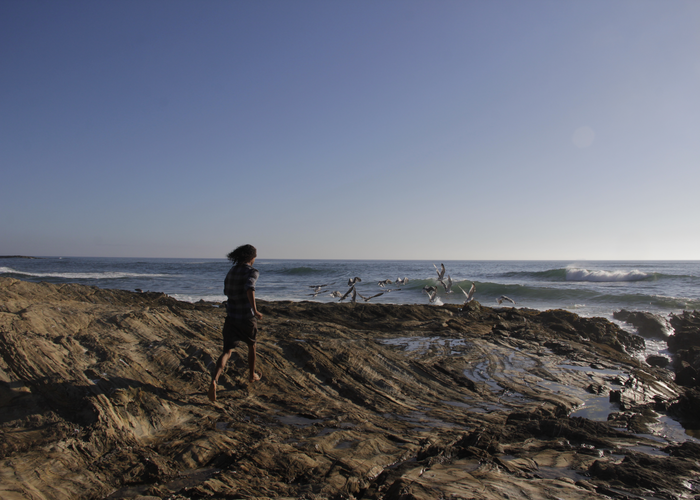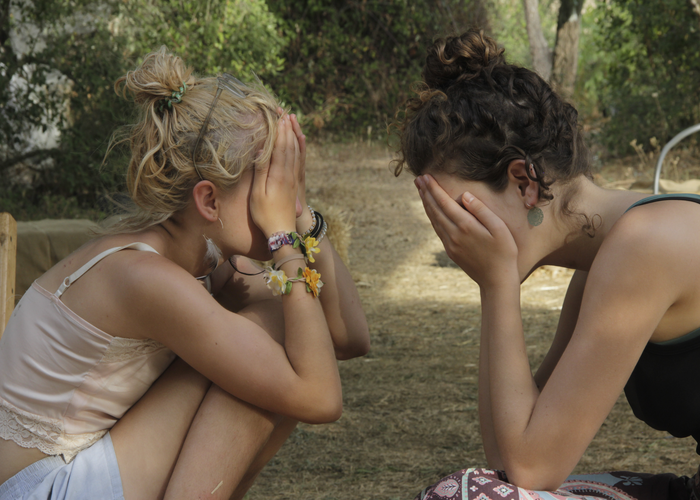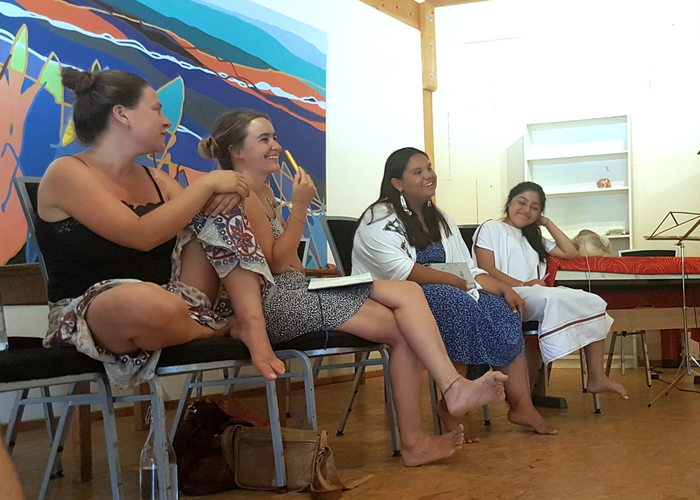Youth Camp 2018: We can make a difference in the world
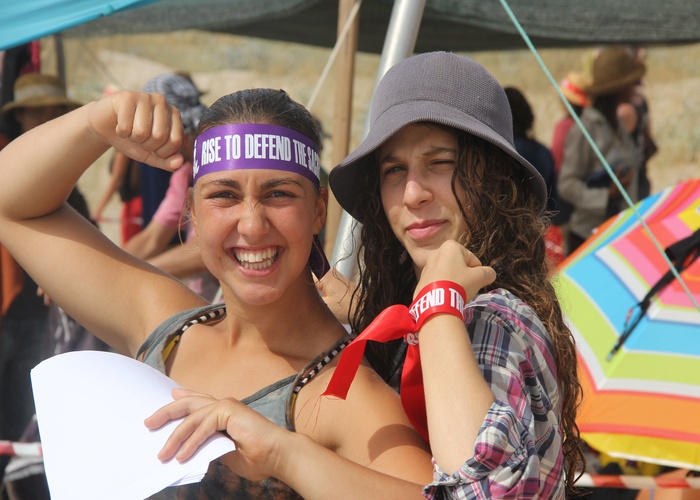
Every summer, for two weeks, Tamera brings together teenagers between 13 and 18 to experience community life, find friends, and discover prospects for a future worth living. This year, we had 43 participants from Portugal, Germany, Switzerland, Israel, the United States and Colombia. A time of extraordinary depth – both politically and interpersonally.
By Nora Czajkowski, part of the leading team
We want young people to experience a foundation of community and trust so they can develop a compassionate view of the world and find new answers to the questions they face as a young generation today. In a world shaken by crises, it’s more important than ever to find credible visions and ideas for peaceful coexistence with all fellow beings. Working with the four key topics of water, energy, food and community, we open our eyes into the world and look to the solutions we have already developed in Tamera:
• Why is not enough drinking water available in many parts of the world and what can we do about it?
• Why are we destroying the environment by extracting oil, gas and coal?
• Which alternatives for energy supply exist?
• Why do so many people suffer from famine and what would regional and sustainable supply cycles look like?
• And last but not least, why is creating communities of trust which include the questions of friendship, love and sexuality a political issue today?
Already, in the first days, the participation from the teenagers was electric. We could feel how awake and committed they were. How badly they wanted to concern themselves with the global, political issues as soon as alternatives became visible.
We then dove into the topic of the planned oil drilling off the coast of Portugal. We gave them the task of preparing a press conference with questions and then presenting their results in a theatrical way as TV news broadcasts. The teenagers processed their harvest creatively and independently.
In a similar way, we also touched the issues of community, love, and sexuality. We offered separate talking circles for girls and boys to share their questions and experiences in a safe environment. Again, the young people worked in small groups to create theatrical scenes in which they processed their topics. This resulted in very creative scenes. It’s amazing to see how much the hearts of young people are present when they get new pictures, ideas and possibilities, and how they express their awakening desire and curiosity in love and Eros!
From the beginning, we practiced the Forum, a form of communication in which individuals show themselves in front of the group and receive feedback on their appearance. In Tamera, we use the Forum almost every day, as a basis for building trust and dealing with interpersonal conflicts. Usually, it’s not easy for teenagers to openly show themselves to a group of 50 strangers. So, we started with a creative modification of the Forum where 2 people entered the circle, each introducing the other. Thus, they were able to develop a playful, easy access to the Forum, and it took only few days for them to come into the center themselves with the issues most burning in their hearts.
From then on, more and more of them wanted to be in the middle every day. It was moving how fully visible they made themselves to each other. Their questions in love, special moments of happiness, doubts and experiences, often so honest and undisguised that many recognized themselves and their issues within others. They saw how they carry the same questions, how they could begin to support each other, and above all, to trust each other. For many it was the first time that they could show themselves to a group without being expelled, judged or bullied for their questions and weaknesses. Through the acceptance and the nonjudgmental space, they started blossoming and dared to show themselves more and more authentically.
One day, we invited Dieter Duhm, the co-founder of the project, to lead the discussion. It was a very inspired session. We talked about leaving the mainstream behind and critically questioning the values of capitalist globalization, the digital revolution and the use of smartphones. The space of thought went down to the questions: Where do we come from? What is life? Is there something like “heaven” and if so, what do we mean by that?
A highlight of the camp this year was certainly joining the activists of the “Defend the Sacred gathering.” On August 4, we were all bused to a beach near Lisbon to attend an aerial art action. Directed by John Quigley, the aerial art action stood against planned offshore oil drilling.
I felt a deep sense of home in this kind of confluence of a global community and with the different generations who are working to protect this planet and its beings. It was the feeling that we’re doing the right thing. It’s a deep concern for us to help young people find their life task and take their place in such a complex and deeply disrupted world. Moments like these are like signposts for me, and a real indication of what it’s about today.
A special gift for this youth camp was the participation of two young Indigenous women: Ati Gumnabia, 15, from the Arhuaco tribe in the Sierra Nevada de Santa Marta, Colombia, and Tokata Iron Eyes, 14, president of the Standing Rock Youth Council in North America. In their young age, both are political activists and messengers of the traditional knowledge of their tribes. We gave them time to talk about their work, the place where they live, their challenges and beliefs.
For Ati, it goes without saying, “What Western civilization calls “progress,” we can’t recognize as such because it destroys nature, water and the Earth. We cannot speak of progress if it destroys the basis of our lives.” Once when I asked if she would like to say something about our youth group, she smiled and warmly replied, “Yes, absolutely: I would like to invite you all to come visit us and see how we live on the other side of the world with each other and with the earth.”
Tokata: “The youth camp reconnects me to my original goal. I travel so much, raise my voice everywhere, and in the end, I always say the same to people. It makes the heart heavy, if you keep saying the same and still nothing changes. The youth camp helps me to regain the belief that we as a young generation can make a difference.”
We thank all those who participated in the camp and who made these experiences possible.


